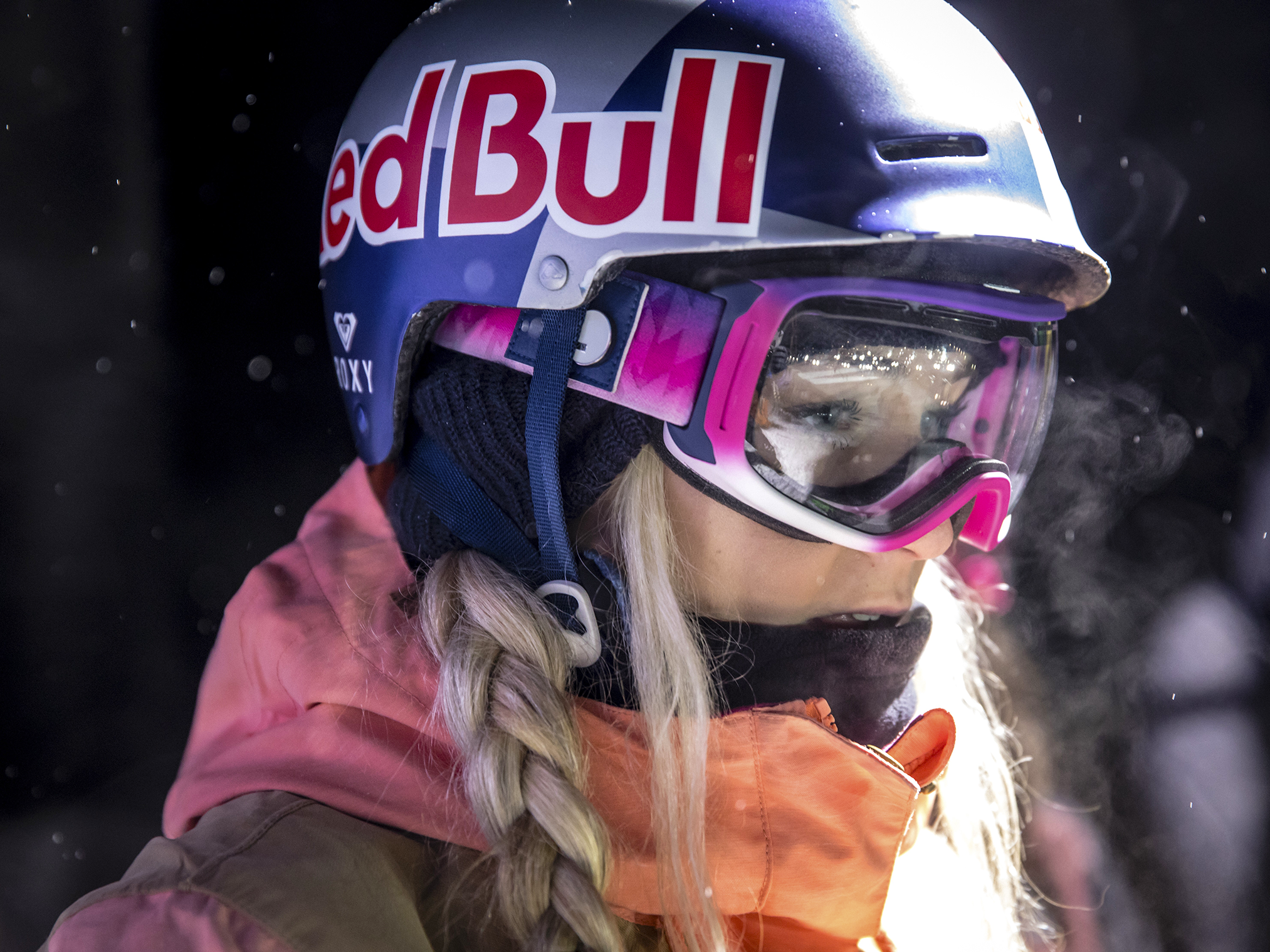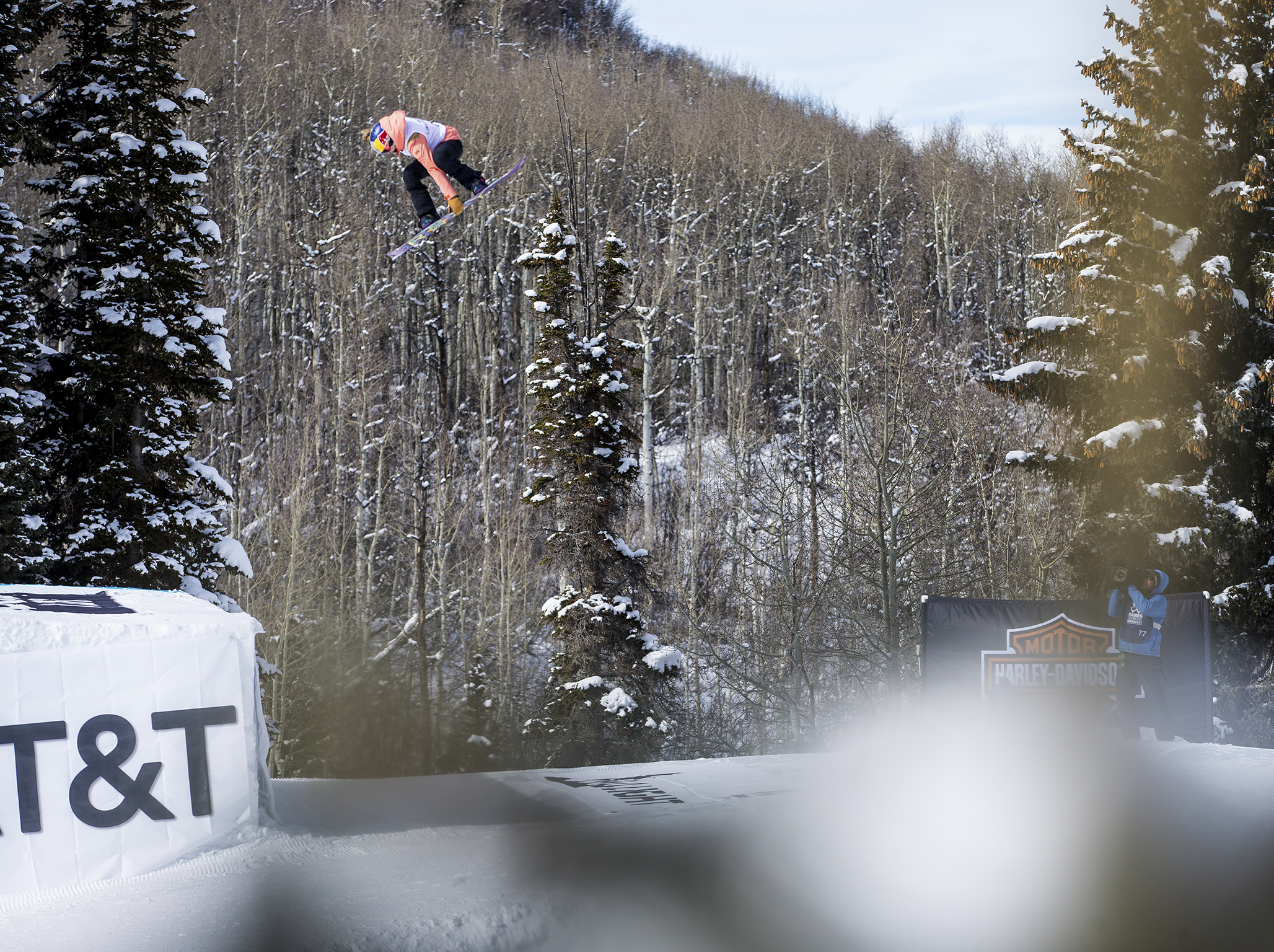Snowboarder Katie Ormerod: ‘I didn’t realise it was physically possible to feel so much pain’
Exclusive interview: Exactly a year to the day since she crashed out of the 2018 Winter Olympics with an agonising heel injury, Katie Ormerod reveals the long and painful journey to get back on her snowboard
To hear Katie Ormerod list all the injuries she has sustained to date is to take a brief lesson in anatomy. By 20 she had already snapped the anterior cruciate ligament in one knee and torn the meniscus in both. She had broken her scapula, an ulna or radius in each forearm, fractured her wrist, and cracked a vertebrae at the base of her spine. So when she describes the moment she split her heel bone in half as entering a whole new dimension of pain, you know she really means it.
“I didn’t realise it was physically possible to feel so much pain,” she says. “All my other injuries were paper cuts compared to this one. It was so, so painful. The initial impact, when I hit the ground and it broke, that was by far the most painful thing I’ve ever experienced.”
It is a year to the day since the talented 21-year-old, tipped to win the first snowboard gold in British history at the 2018 Winter Olympics in Pyeongchang, crashed in practice the day before the Games began and broke her heel. She was transferred to a hospital in Seoul for emergency surgery where a few upbeat Instagram posts gave the impression of an athlete on the mend, but the reality of Ormerod’s long journey was only just becoming clear – one of emotional turmoil, of tested faith, and of cruel exploration into a tolerance for pain.
“I had another four operations within four weeks of being home, which were all skin operations because by that point they’d realised I’d had complications. It was basically back and forth to London once a week to get operated on and then just coping with the pain.
“After the first surgery where they pinned it back together, I kind of just hoped it would stop the pain, but it hurt even more, and after each operation it was really sore and that didn’t go away. Then, once it started to settle down a little bit, I had a trapped a nerve in my foot which was causing lots of sleepless nights.”
What followed from the physical pangs and throbs was a psychological torment which Ormerod admits she wasn’t prepared for. After getting through the initial disappointment with a deluge of supportive messages from home and abroad – “I got tweeted by one of the guys from Rudimental, which I thought was quite cool” – she found life got much tougher before it got any easier.
“It did hit me hard, a lot harder than I expected mentally, especially at the start thinking I was just gonna be feeling gutted about missing out on the Olympics, and then I had the worst year I’ve ever had on top of it.

“The lowest moment was probably about three or four months in. There was a lot going on and I had a lot of complications with my injury. In the gym I was physically getting stronger but the pain in my foot wasn’t getting any better, and I realise now that’s because the pins in my foot were sticking out and rubbing my Achilles. I thought ‘This could be career-ending if the pain never goes away’. It was really hard to deal with.”
Three months after first injuring her heel, Ormerod put away the crutches and her foot began to bear weight. A month later she underwent her sixth and final operation. This week, she finally travelled out to Switzerland for her first taste of freestyle snowboarding a full year after crashing on those practice slopes in Pyeongchang.
“My sponsors Red Bull were really supportive and got me the best treatment and physio care. I realised I just had to focus on all the positive in my life, and focus on what I want, like getting back on my snowboard, riding the best I’ve ever ridden. Even on the really tough days where it felt impossible, I had to really believe that one day I wouldn’t be in pain and I’d be back on my board.
“And talking about the mental side – I found that talking about it was helping me and other people in similar situations.”
Ormerod has now set her sights on returning to competitive action this year, either at the end of the northern hemisphere season in April or the start of the southern hemisphere season in August, as she begins the long road to the next Games, in the French Alps in 2022.
Four-year cycles are both a blessing and a curse of sports mega-events like the Olympic Games and the World Cup. It is what gives them a sense of vital importance, each with their own guarded space in history, yet which also makes them seem rare and elusive, which makes the heartbreak of a penalty shootout or a false start or a freak injury all the more wretched.

“Going into the Olympics I felt so ready to do well, I really felt like I could bring back a medal,” Ormerod says. “I’ve never been more ready so it was just frustrating for me. I know that I can go to another Olympics but the timing felt so right. I felt ready to show the world what I could do.
“But I’m so glad I pushed through it and came out the other side. I’ll definitely be ready in a few years to go again.”
To find out more about Katie Ormerod please visit redbull.com
Join our commenting forum
Join thought-provoking conversations, follow other Independent readers and see their replies
Comments
Bookmark popover
Removed from bookmarks